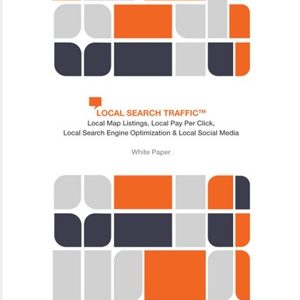
A blog post on Diggity Marketing describes a tactic that appears to expose lax ranking standards on Google Local searches. The tactic involves ranking a website for local search terms and then renting it out to a local business, allowing that business to collect leads from the site’s position in Google.
This is What Rank and Rent Is
Matt Diggity describes creating a website that ranks for a specific search phrase, typically local. A typical keyword might be [City Name] + [Service].
Rank and Rent works like this:
A marketer promotes a website until it ranks for multiple commerce-related keyword phrases. The marketer then contacts businesses interested in renting the site to acquire leads. The business rents the site and profits from the generated leads.
This is how Matt Diggity describes it:
“Rank & Rent is a digital marketing strategy where you build a site, nurture it until it becomes visible on search engines, and then rent it out. Local SEO veterans are flocking to this strategy because it’s simple, scalable, and best of all—lucrative.”
Rank and Rent is Lead Generation
Rank and Rent is a variation of the lead generation business model.
Lead generation involves ranking a web page for a search phrase and selling leads from that page. Companies like Yelp and HomeAdvisor exemplify this model.
Yelp and HomeAdvisor rank web pages for local search-related keywords. Their business model involves ranking for these phrases and selling leads from the resulting traffic, sometimes through paid advertising.
Rank and Rent varies in that it rents an entire website and all its keywords to a single business.
This is advantageous for businesses as they can benefit from the rented site and rankings from their own website.
Local Search Keyword Ranking
Yelp and HomeAdvisor use their sites to rank for search queries and sell ads and leads. New Food Economy revealed that GrubHub purchases domain names matching business names to sell leads from those unofficial websites.
For example, Google ranks GrubHub for the name of Mosher’s Deli, while the site moshersgourmetlongbeach.com, also owned by GrubHub, ranks just below it in the results.
Ranking the name of a business attracts users to the GrubHub-owned site, and when an order is placed, GrubHub earns a referral fee.
The actual Moshers Deli website ranks in position seven. The point is that even a big brand like GrubHub uses domains other than its own to rank in Google and generate leads.
While GrubHub doesn’t practice rank and rent, it ranks websites other than its own for lead generation purposes.
Matt Diggity’s described tactic is a variation: the search marketer rents the entire website instead of selling leads.
Local Search Ranking Easily Exploited?
Earlier in 2019, a site created almost entirely with Lorem Ipsum text ranked number one in Google Local search. This site with content in an extinct language managed to hold the top rank for months. Google only removed it after it was publicly exposed. This occurrence indicates a weakness in Google’s local search algorithms.
Rank and Rent is Not New
Rank and Rent isn’t new. Domainers have rented domains for at least fifteen years. The practice of ranking and renting domains for lucrative keywords has been around even longer. Many people have engaged in renting or selling well-ranked domains.



